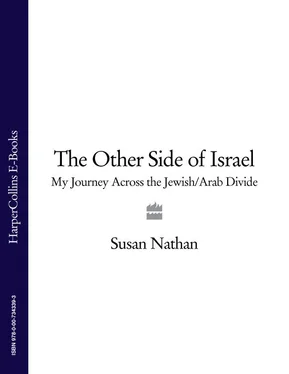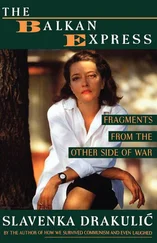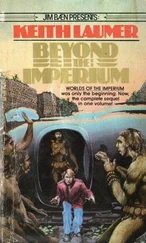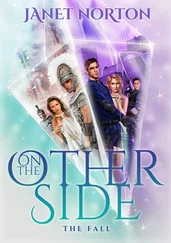1 ...7 8 9 11 12 13 ...18 I found there was nothing I could say to reassure Amin as he spoke in a tone of absolute despair about Tamra’s future. He had exhausted all the official channels, commuting to Jerusalem regularly to try to persuade Jewish officials and politicians of Tamra’s crisis, only to be met by a uniform lack of interest or by condescension. It seemed to me the height of irony, given our history, that the Jewish state has so little concern about the ghetto living it has forced on its Arab citizens. Amin said he felt humiliated and powerless every time a young couple came to him seeking help with their housing problems. All he could do was to turn them away empty-handed. It was not as though they had other choices available to them. Israel makes it virtually impossible for Arabs to live in Jewish communities, and other Arab communities are in the same dire straits. Couples would simply be moving from a ghetto they know to another they did not, to a place where they could not even rely on the support of their hamula.
‘You know, Susan,’ Amin said, ‘even dying is a problem if you are an Arab in Israel. In Tamra we have run out of land to bury our dead.’
I asked him how he felt about living here. His head in his hands, he told me he was thinking about a way to leave Israel with his wife and three young children. If he did, he would be joining the rest of his three siblings, all of whom are doctors, in exile: his two brothers are in the United States, and his sister in France. ‘It feels to me like a subtle way of ethnically cleansing me off my land,’ he said. Today there are an equal number of Jews and Arabs living in the Galilee, he pointed out, but it is obvious from looking at the region’s development plans that one ethnic group is benefiting at the expense of the other. ‘These plans are about making life impossible for us, the Arabs, to remain here. Israel destroys the structure of our family life, making us weak and fragmented. If it continues like this, anyone who can leave will do so. I want to stay here, to raise my children in their homeland, but I have to be realistic. How can I stay when all the messages my state sends me are that I am not welcome?’
* Until recently all Israeli ID cards divulged the ethnic group of the holder. New ID cards often have a row of stars in the place where nationality is identified (see glossary entry on citizenship, page 267). It is widely believed that the cardholder’s ethnic group is revealed by the ID number.
* Since 1953 it has been awarded each year to an Israeli citizen who has demonstrated excellence or broken new ground in a particular field.
Inside the information pack from the Jewish Agency office in London was a badge and an accompanying letter: ‘Wear this as you walk off the plane to begin your new life as an Israeli citizen,’ the instructions stated. So on 10 October 1999, as I made my way down the flight of steps onto the tarmac of Tel Aviv’s Ben-Gurion international airport, I had a badge pinned to my chest bearing the slogan: ‘I’ve come home’.
The thought that I and the hundreds of other new immigrants arriving each week on El Al flights from all over the world were reclaiming a right that had lain dormant for two thousand years did not strike me as strange. For the fuel that brought me late in life to Israel as a new immigrant, with only a couple of suitcases of belongings with me, was a dream I had secretly harboured since my childhood. The object of my desire was to make aliya, the Hebrew word for ‘ascent’, an idea that in returning to Israel a Jew is fulfilling a divinely ordained mission.
At the age of fifty I was leaving behind my home in Wimbledon, South London, two grown-up children, Daniel and Tanya, a recently failed marriage and my work as an Aids/HIV counsellor. Other than these attachments, not much stood in my way: Israeli law entitles me and every other Jew in the world to instant citizenship if we choose to live in Israel. There are no visa applications, points systems or lengthy residency procedures. As a Jew I had a right to Israeli citizenship by virtue of my ethnicity alone. The Jewish Agency in London had been able to process my application for Israeli citizenship in just a week, and it made sure the immigration process was as pain-free as possible: my flight ticket was paid for, and accommodation was provided while I found my feet in the Promised Land. The only hesitation on my part was a reluctance, when confronted by an official issuing my Israeli identity card, to adopt a Hebrew name. My friends suggested I become either Shashana or Vered—the names of two flowers—but at the last minute I decided to stick with Susan.
I am not sure I can identify the exact moment I became a committed Zionist, but I do know that a single childhood incident changed the direction of my life, and my understanding of what it was to be a Jew. I was eleven years old and on an outing with some girls from my boarding school to nearby High Wycombe, one of the many commuter towns that ring London. Browsing through the shelves of a small bookshop in one of the backstreets, away from the other girls, I stumbled across the most horrifying picture book. As I leafed through its pages I found photo after photo of emaciated corpses piled high in pits, of men ripping out gold fillings from teeth, of mountains of hair and shoes. At such a young age I was not aware that these were pictures of the Holocaust, an event that was still fearsomely present in the imaginations of Jews around the world fifteen years after the end of the Second World War. But the awfulness of the images transfixed me.
I learned the story behind these photographs from my parents shortly afterwards, so beginning my compulsive interest in the Holocaust and Jewish history. The following year, 1961, after I had moved to a new boarding school in Buckinghamshire, the trial of the Gestapo leader Adolf Eichmann began in Jerusalem. I read the newspapers every day, appalled by the accounts of the Final Solution, Hitler’s attempt to exterminate the Jewish people. I also recall weekends spent poring over copies of the Jewish Chronicle in my parents’ home, reading in the personal columns the notices from individuals and families still searching for relatives in Europe they had been separated from for as much as two decades. These heart-rending messages were an uncomfortable reminder that the legacy of loss and destruction wrought by the concentration camps was continuing. My exposure to the Holocaust—and my new understanding that millions of Jews had died at the hands of the Nazis—launched me on an ever wider quest for knowledge: not only of what had happened to its victims, but also of what had led to such barbarity.
My own family, I was soon aware, had only narrowly escaped—by a quirk of destiny—the tragedy that had consumed so many others. My father’s parents, before they met, were refugees from the pogroms in Lithuania in the 1880s, fleeing separately to Odessa where each hoped they might catch a ship to Hamburg and a new future in Germany. But when they arrived at the port they, and many other refugees, found the ship full and so were forced to travel on the only other vessel, bound for Cape Town in South Africa. As we now know, their fates and their children’s were sealed by that missed boat: instead of finding themselves caught up in the rise of European fascism, they watched the horrific events unfold from the safe distance of Cape Town. My father was, however, in Europe at the outbreak of war. He had left South Africa in the late 1920s, travelling streerage class on a boat bound for Ireland, a penniless but brilliant medical student. He enrolled at Trinity College, Dublin, where he was mentored by Yitzhak HaLevi Herzog, the chief rabbi of Ireland and the father of Israel’s sixth president, who helped him become a passionate Zionist. By the time Nazism was on the rise in Germany my father was a leading surgeon in London, where he met my mother, a nurse. They spent the war itself tending to the injured in Tilbury docks in Essex, one of the most heavily bombed places in Britain.
Читать дальше












